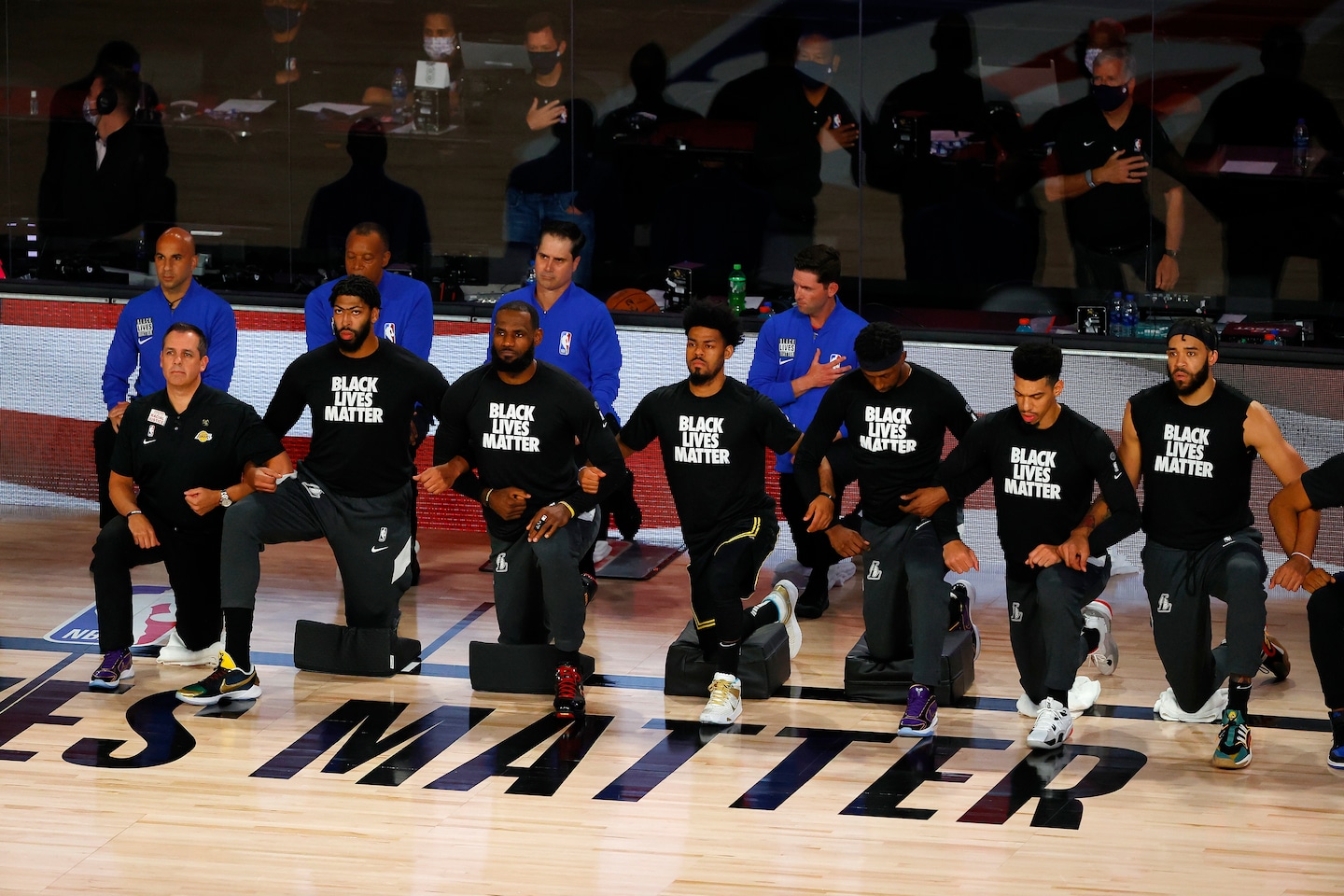NBA players set a new standard of civil disobedience. Now there’s no going back.

It’s too early to determine the exact legacy of the NBA players’ unified protest against racial injustice and their decision to skip playoff games for multiple days. Time and history will sort out all of the specifics. But there is one theme that already rings out, and it further complicates the roiling conflict between sports and society.
There is a new standard of civil disobedience. The repercussions for ignoring athletes’ concerns have risen to an unprecedented level. It’s uncomfortable and, for some, infuriating. But this is where we are: A precedent has been set that amends the playbook of purposeful defiance.
In sports, precedents are explosive. Copycat tendencies are prevalent. I don’t know if we will ever see a league refuse to play specifically for social justice again. But for all matters in which athletes feel people aren’t listening, this tactic is now in their repertoire. And there’s a possibility the strength of such resistance could be enhanced.
Next time, the threat might be greater than a game or two. Depending on the issue, the level of discontent and the temperament of the players, that detonator the NBA didn’t set off could be in play.
Sports have seen individuals refuse to compete, such as the Bill Russell-led walkout of a 1961 exhibition game. They have seen a smattering of boycotts. They have seen demonstrations before and after games. But it’s novel to see an entire league, full of different viewpoints and values, sacrificing so boldly for a cause.
Over decades of athlete protests, it has been a long, lonely trudge to get to a point of this kind of solidarity. That moment is here, and it is escalating quickly. The power and uniformity of the WNBA no doubt inspired its brother league to ratchet up the intensity following the police shooting of Jacob Blake in Kenosha, Wis. The next time a team or whole league can build consensus around a cause, it might raise the stakes even higher.
For the exasperated, die-hard sports fan, the worry comes with a question: Where does it end? For the disgusted sports fan, the reaction will be, at minimum, a threat to walk away. For the executives, athletic directors and coaches, this week should be a wake-up call to do more than be in charge. They must connect better with the concerns of their players, foster an environment of collaboration (it can be done, as NBA Commissioner Adam Silver has shown) and, most importantly, get ahead of potentially divisive in-house issues by being more proactive about fairness.
Otherwise, there is the potential for a series of battles that will be unpleasant for everyone. Problems exist in sports that could be worth burning down systems. Women are fighting for equal pay. College athletes are fighting for a new model that respects the revenue they generate. People throughout sports are dealing with physical and emotional abuse and predatory sexual behavior excused — and sometimes covered up — by people who are supposed to protect them.
The exploitation and inattention are embarrassing. Now there is an example of how to yell “Enough!” using collective energy and passion. Soon, all sports are going back to the courts and fields. But they’re not going back to how things were. They’re moving deeper into a different environment, one that may not be so obsessed with appealing to everybody.
Morally, it is a good thing. Practically, it’s not the shrewdest business decision. But as athletes have been saying for the past two days, it is bigger than basketball. And football. And baseball. And soccer. And tennis. So much of sports revolves around the contemplation of value. But life is invaluable.
NBA players are returning to the court because they understand it is too irrational to punish themselves and their leaguewide allies for this particular stance. There is no immediate benefit to forcing the playoffs to end prematurely. They have gotten the attention of the country. They have forced more people to react, if not fully care. And they have made it clear that they are not docile entertainers willing to play, keep quiet and swallow their pain.
But it is more sensible to tease destruction than to swing the ax in a tantrum-like display. The power of this moment isn’t merely tied to the actual act of protest and the many sibling pro leagues that (eventually) had the NBA’s back. It is the damage that they could have done — that they were on the brink of doing — before reconciling with convention.
Ultimately, too much money was at stake for a league trying to crawl through the pandemic. And too much of the league’s immediate future was at stake. The NBA and its players had something to lose. That tempered their emotions.
Nevertheless, there is a new paradigm for sending an unheard message. The resistance is uncomfortable, hazardous and disruptive to a sports world that often churns on autopilot.
For the second time in less than six months, something stopped that hamster wheel. One day, there will be a vaccine for the novel coronavirus, and the issue of excessive police force won’t be so prominent. But suffering and inequality will never end, and neither will indifference to them.
It is inevitable that those things will keep diminishing the playfulness of sports. We are left with three options: Leave in a huff. Bark aimlessly for the preservation of ignorance. Or assuage the concerns of these sports figures, supposedly beloved, no longer willing to compromise their humanity.
Read more:






